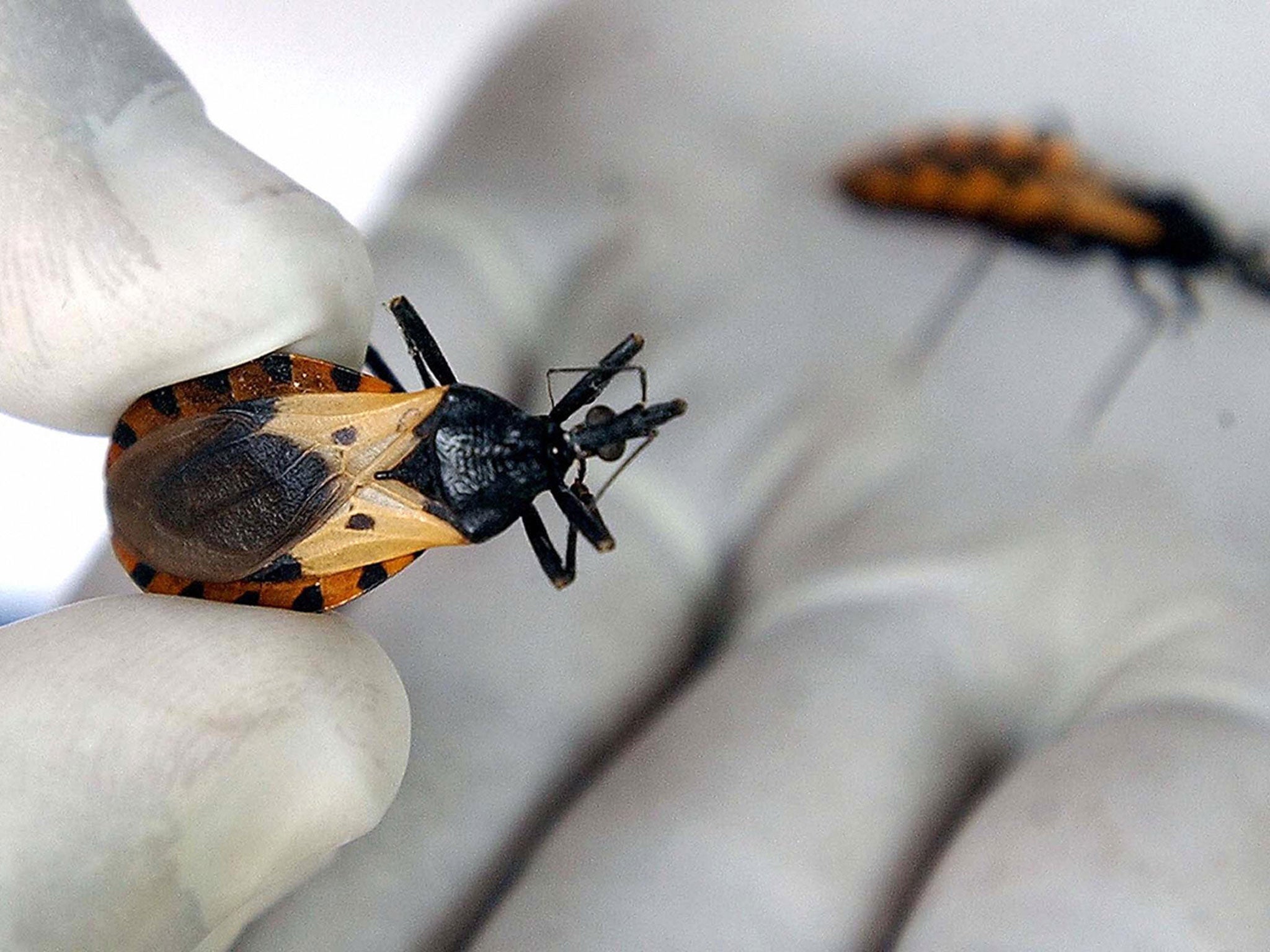'Kissing bug' disease: Should you be worried about chagas?
It might not have the profile of Ebola, but chagas can still be lethal

Your support helps us to tell the story
From reproductive rights to climate change to Big Tech, The Independent is on the ground when the story is developing. Whether it's investigating the financials of Elon Musk's pro-Trump PAC or producing our latest documentary, 'The A Word', which shines a light on the American women fighting for reproductive rights, we know how important it is to parse out the facts from the messaging.
At such a critical moment in US history, we need reporters on the ground. Your donation allows us to keep sending journalists to speak to both sides of the story.
The Independent is trusted by Americans across the entire political spectrum. And unlike many other quality news outlets, we choose not to lock Americans out of our reporting and analysis with paywalls. We believe quality journalism should be available to everyone, paid for by those who can afford it.
Your support makes all the difference.Researchers at the annual gathering of tropical medicine experts have warned of a deadly disease from abroad that is threatening world health. They weren't talking about Ebola, but chagas, the "kissing bug" disease.
Called a silent killer because it's often hard to diagnose in the early stages, chagas is a parasitic infection that can lead to serious cardiac and intestinal complications and even death. It typically spreads through blood-sucking "kissing" bugs that bite on people's faces during the night and is estimated to affect seven to eight million people worldwide. The disease can also be spread from blood transfusions, organ transplants and congenital transfer from mother to child, according to the CDC. Until recently it was considered a problem only in Mexico, Central America and South America. Over the past few years, the Centers for Disease Control and Prevention has seen cases across half the United States, but in most cases the victims were believed to have been infected abroad.
As recently as 2012, scientists expressed worry about the "globalization" of chagas.
Now a team of researchers from Baylor College of Medicine in Houston is challenging that assumption. During a presentation at the American Society of Tropical Medicine and Hygiene meeting in New Orleans, epidemiologist Melissa Nolan Garcia said her team had been following 17 Houston-area residents who had been infected. At least six of them appeared to have been infected locally as they had had insignificant travel outside the United States. Most of the patients spent a lot of time outdoors or lived in rural areas where the bugs are thought to live. The Baylor group also collected 40 kissing bugs near homes in 11 central-southern Texas counties and found that half had fed on human blood as well as that of a dozen kinds of animals ranging from dogs to raccoons.
The researchers said that while the number of cases is growing, physicians' awareness of the disease is lagging. When caught in the early stages, the disease can be treated with two drugs, nifurtimox and benznidazole, but if asymptomatic infections are allowed to progress they can lead to serious complications. Many of those who are now recognized as having the disease were flagged after they donated blood and had never been treated for the disease before that.
Virginia was identified by the Baylor researchers as one of the states having a higher number of cases but health officials in the state this summer cautioned that news reports of the disease being prevalent in the area are overstated.
© The Washington Post
Join our commenting forum
Join thought-provoking conversations, follow other Independent readers and see their replies
Comments